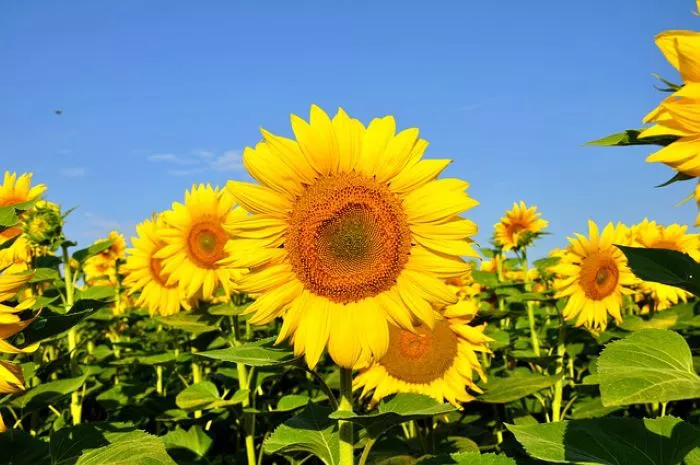Sunflowers are popular among gardeners for their vibrant blooms and easy cultivation. They are also valued for their seeds, which can be saved for future planting. Many gardeners wonder how long sunflower seeds will last for planting purposes. This article will explore the longevity of sunflower seeds, factors affecting their viability, and best practices for storage.
Introduction to Sunflower Seeds
Sunflower seeds come from the sunflower plant, scientifically known as Helianthus annuus. These seeds are not only nutritious but also serve as a source of new plants. Saving seeds from a successful sunflower crop can be an economical and rewarding practice. However, understanding how long these seeds will remain viable is crucial for successful planting.
Sunflower seeds can last for several years if stored properly. The viability of the seeds decreases over time, so it is essential to know how to store them and when to plant them for the best results.
Seed Viability and Longevity
The lifespan of sunflower seeds for planting can vary based on several factors. Generally, sunflower seeds can last for three to five years if stored under ideal conditions. However, their viability can diminish faster if not stored properly.
Freshness of Seeds: Seeds harvested from healthy plants are more likely to remain viable for longer periods. Seeds should be collected when the sunflower heads are fully mature and dry. Waiting too long can lead to seed loss due to natural dispersal.
Storage Conditions: The way seeds are stored significantly impacts their longevity. Seeds should be kept in a cool, dry, and dark place. High humidity and temperature fluctuations can lead to mold and reduce seed viability.
Seed Type: Different sunflower varieties may have slightly different lifespans. However, the general rule of thumb is that most sunflower seeds will last about three to five years under optimal conditions.
Factors Affecting Seed Viability
Several factors influence how long sunflower seeds will remain viable for planting. Understanding these factors can help gardeners maximize seed longevity.
Moisture: Moisture is one of the most critical factors affecting seed viability. Seeds should be completely dry before storage. Any moisture can lead to mold growth and decay. It is advisable to store seeds in airtight containers to prevent moisture absorption.
Temperature: Ideal storage temperatures for sunflower seeds are between 32°F and 41°F (0°C to 5°C). Higher temperatures can accelerate seed aging and reduce viability. A refrigerator is often a good option for storing seeds.
Light Exposure: Light can also affect seed viability. Seeds should be stored in opaque containers to protect them from light exposure. Prolonged exposure to light can degrade the seeds and reduce their lifespan.
Seed Quality: The initial quality of the seeds plays a significant role in their longevity. Seeds that are damaged or of poor quality will not last as long as healthy seeds. Always select seeds from reputable sources.
Testing Seed Viability
Before planting saved sunflower seeds, it is a good idea to test their viability. This process can help determine if the seeds are still capable of germinating. Here is a simple method to test seed viability.
Gather Materials: You will need a few seeds, a damp paper towel, and a plastic bag or container.
Moisten the Towel: Dampen the paper towel with water, ensuring it is moist but not soaking wet.
Place Seeds on the Towel: Spread the seeds evenly on one half of the towel. Fold the other half over the seeds to cover them.
Seal and Wait: Place the towel in a plastic bag or container to maintain humidity. Keep it in a warm location, ideally around 70°F to 80°F (21°C to 27°C).
Check for Germination: After about a week, check the seeds for signs of germination. If at least 70% of the seeds sprout, they are still viable for planting. If fewer seeds germinate, consider purchasing new seeds.
Best Practices for Storing Sunflower Seeds
To ensure sunflower seeds last as long as possible for planting, follow these best practices for storage.
Harvesting: Harvest seeds when the sunflower heads are fully mature and dry. Cut the heads and allow them to dry further in a well-ventilated area.
Cleaning: Remove any debris or plant material from the seeds. Clean seeds will store better and have a lower risk of mold.
Drying: Ensure seeds are completely dry before storage. Spread them out in a single layer on a paper towel or screen for a few days.
Airtight Containers: Store seeds in airtight containers such as glass jars, plastic containers, or vacuum-sealed bags. This will help keep moisture out.
Labeling: Clearly label containers with the date of harvest and the type of sunflower. This will help you keep track of seed age and variety.
Regular Checks: Periodically check stored seeds for signs of moisture or mold. If any seeds appear damaged, remove them immediately.
Conclusion
Sunflower seeds can last for three to five years for planting if stored properly. Factors such as moisture, temperature, light exposure, and initial seed quality all play a crucial role in determining seed longevity. By following best practices for harvesting, cleaning, drying, and storing sunflower seeds, gardeners can maximize their viability for future planting.
Testing seed viability before planting can also help ensure successful germination. With proper care and attention, saved sunflower seeds can provide beautiful blooms for many seasons to come. Whether you are a seasoned gardener or a beginner, understanding how to store and manage sunflower seeds will enhance your gardening experience and yield vibrant sunflowers in your garden.


